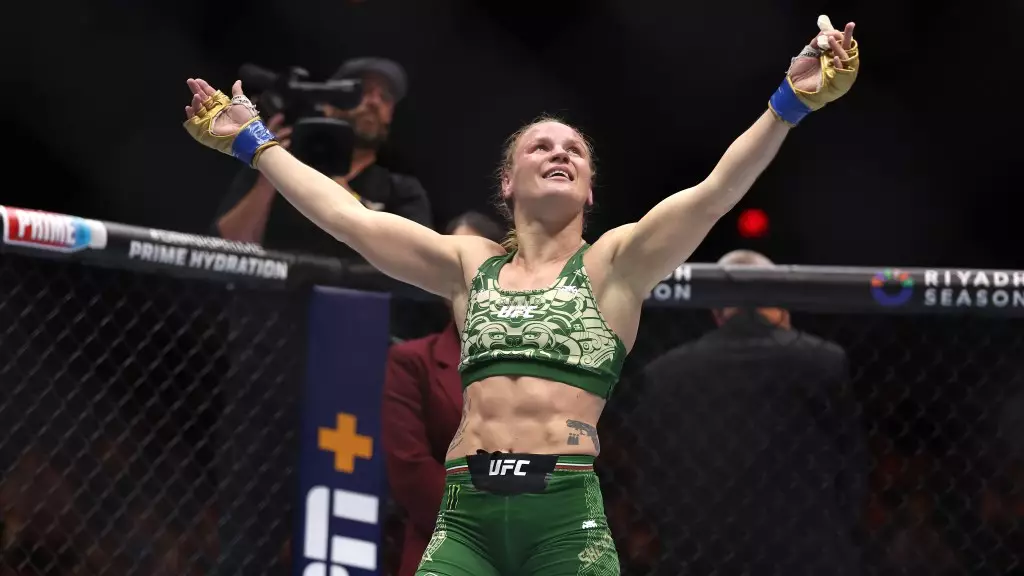Valentina Shevchenko’s recent victory at UFC 306 was a significant moment in her career, as she reclaimed her flyweight championship title by decisively defeating Alexa Grasso. The fight unfolded in the vibrant atmosphere of Las Vegas, an iconic locale in the mixed martial arts (MMA) world. While the bout showcased Shevchenko’s remarkable skills and determination, it also spotlighted issues that extend beyond the octagon. Notably, Manon Fiorot’s presence as a backup fighter provided an interesting subplot, one that many observers—including former fighter Chael Sonnen—believe was overlooked by Shevchenko post-fight.
Manon Fiorot, boasting an impressive undefeated record, played a significant role as the backup for the main event. She was prepared to step in should any complications arise during the Grasso-Shevchenko fight. Despite Fiorot’s readiness and her position as the No. 1 contender in the flyweight division, Shevchenko failed to acknowledge her after the fight, a move that Sonnen labeled a clear misstep. By neglecting to mention Fiorot, Shevchenko missed a crucial opportunity not only to give respect to her fellow fighter but also to set the stage for a potential matchup that many fans and analysts are anticipating.
In competitive sports, especially in the high-stakes realm of the UFC, acknowledging opponents is not just a matter of sportsmanship but also a strategic play for future title fights. Sonnen’s critique underlines the expectation that champions should recognize their challengers, particularly when the conversation around the next title fight is already rife with speculation. By focusing solely on thanking her team and UFC executives, Shevchenko inadvertently implied that orher contenders, like Fiorot, are not worthy of her immediate attention—which could have negative ramifications for her public image as well as the sport’s narrative.
Sonnen raised valid points regarding the implications of Shevchenko’s oversight. The UFC is a business built on hype, storylines, and rivalries; thus, engaging with potential challengers is vital for maintaining interest and excitement around a division. By failing to pay her respects to Fiorot, Shevchenko risks diminishing her own value as a champion, making her subsequent fights less compelling and possibly affecting audience turnout for future events.
Fiorot’s efforts to prepare for a potential fight that ultimately did not happen reflect the sacrifices fighters make, and failing to acknowledge this can be seen as a disregard for the competitive spirit that defines MMA. The fans and supporters invest emotionally and financially into these athletes, and it is important for champions to honor that dedication through their words and actions.
Valentina Shevchenko’s oversight in failing to recognize Manon Fiorot post-fight at UFC 306 serves as a reminder of the delicate balance between personal achievements and communal respect within the sport. By acknowledging opponents, champions reinforce the importance of competition and respect, while simultaneously building anticipation for future matchups. For Shevchenko, it would have been advantageous to delve deeper into the ethos of the sport—not just for Fiorot’s sake, but for the wellbeing of the flyweight division as a whole. The power of a simple acknowledgment can stir excitement and opportunity, ensuring that the sport continues to thrive.

